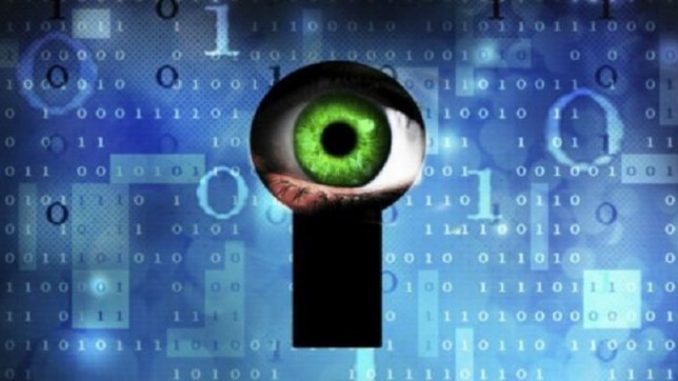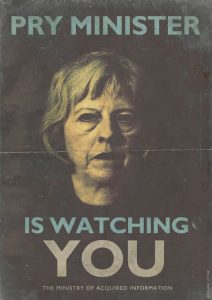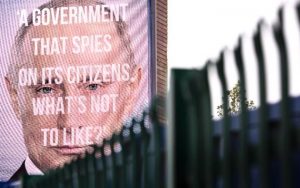
The British parliament has approved a controversial bill which will provides mass surveillance powers to police and intelligence services that critics have condemned as the most intrusive in any Western country.
The draconian new surveillance powers are set to become law before the end of the year after the Investigatory Powers Bill passed through the House of Lords on Wednesday.

BYPASS THE CENSORS
Sign up to get unfiltered news delivered straight to your inbox.
You can unsubscribe any time. By subscribing you agree to our Terms of Use
Latest Video
The ‘snooper’s charter,’ will create a legal framework authorizing the government to hack into devices, networks and services in bulk.
Press TV reports:
The Investigatory Powers Bill is one of the measures the UK parliament passed this week that requires Internet and phone companies to store customers’ communication history for up to a year and allow authorities to access them for investigations.
The bill also allows the government to force phone-makers to hack into people’s handsets. It is likely to be enforced in a matter of weeks.
Edward Snowden, the former US intelligence officer turned whistleblower, said the powers “went further than many autocracies.”
“The UK has just legalized the most extreme surveillance in the history of western democracy,” he wrote in a Twitter post.
The UK has just legalized the most extreme surveillance in the history of western democracy. It goes farther than many autocracies. https://t.co/yvmv8CoHrj
— Edward Snowden (@Snowden) November 17, 2016
The legislation was passed by the House of Lords, the upper house of the parliament, and now only needs approval by Queen Elizabeth II.
UK Prime Minister Theresa May introduced the bill in March when she was still home secretary. She called it a “world-leading” bill intended to reflect the change in Internet communications.
But critics have described it the “snooper’s charter” and say that, in authorizing the extensive retention and access by authorities of records of web activity, emails, calls and texts, it violates fundamental human rights.

“The passage of the snoopers’ charter through parliament is a sad day for British liberty,” said Bella Sankey, the policy director of Liberty, a civil liberties advocacy group based in the UK.
“Under the guise of counter terrorism, the state has achieved totalitarian-style surveillance powers – the most intrusive system of any democracy in human history,” she said. “It has the ability to indiscriminately hack, intercept, record, and monitor the communications and internet use of the entire population.”
Critics also warned the impact of the legislation would reach beyond Britain.
“It is likely that other countries, including authoritarian regimes with poor human rights records, will use this law to justify their own intrusive surveillance powers,” said Jim Killock, executive director of digital campaigners Open Rights Group.



